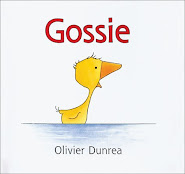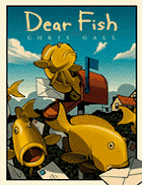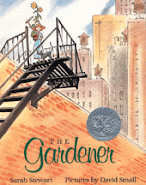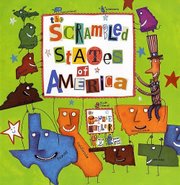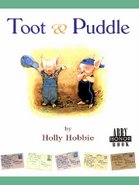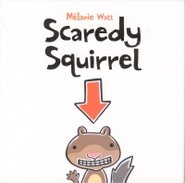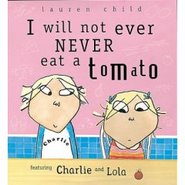
12.26.2007
Wits End

12.21.2007
Running Around in Circles
 My son is a runner, and a fast one at that. He likes to run in circles around the couch, up and down the hall, etc. I usually think it's cute, except for when we're in a public place and he wants to run. I've tried strollers, carrying him, and even bringing treats to distract him, but he'll kick, scream, and foam at the mouth until I finally cave and let him down. Then, off he goes and the chase ensues. Any advice for this "out of breath" mom?
My son is a runner, and a fast one at that. He likes to run in circles around the couch, up and down the hall, etc. I usually think it's cute, except for when we're in a public place and he wants to run. I've tried strollers, carrying him, and even bringing treats to distract him, but he'll kick, scream, and foam at the mouth until I finally cave and let him down. Then, off he goes and the chase ensues. Any advice for this "out of breath" mom?12.20.2007
Loud Little One
My three year old is LOUD. He seems to find yelling is the way to talk. It isn't like we don't hear him when he doesn't yell and we aren't yelling or loud parents... When we ask him to talk quietly or use your indoor voice, he says he is or that he can't talk quieter. I have tried just whispering to him to see if he would catch on, doesn't work...What can we do? He is teaching out one year old to be loud too and I am not sure my head can take anymore noise!
The best phrase I can offer you is, "My ears can't hear when..." So, every time your little one shouts that he needs you, you can respond with, "My eyes can see that your mouth is moving, but when you talk too loud my ears can't hear the words very well." And then, this is really important, model what you would have liked him to say and in what volume and tone.
For example, he shouts that he needs cookies. You quietly say, "Mom, I would like a cookie please." He tries it. If its right, great. If not, then try again. Sometimes it may take a few times going back in forth. But MODELING is the way I've had the most success.
Of course, if you really can't tell the difference - then you may need to do something like a Volume Bootcamp. You could go outside with the intention of exploring volume. It might be really eye opening if he hears you yell...what it is like when you shout too loud. You could simply go outside to play in the snow - and try and role play. But be too loud or too quiet. Ask him to help show you the right voice to use outside.
In the end, there isn't a wrong or right volume. But, perhaps a right or wrong time to use that volume. So, giving your little one control might help!
Painting: Peter Breugel's Children's Games
12.17.2007
Traveling with a Baby
 We are traveling next month and I'm not quite sure what to bring for a 9 month old...does anyone have anything good for little ones?
We are traveling next month and I'm not quite sure what to bring for a 9 month old...does anyone have anything good for little ones?Traveling is a hot topic right now, and traveling with babies is very different than traveling with a toddler or older child.
First. I echo my advice for older kids--the first thing I do on an airplane is bring Clorox wipes in a plastic bag and wipe down all of the airplane seats and trays first thing. Babies seem to get their mouth on everything - so its nice to not worry.
Second. Non-toy toys are the best and seem to hold babies attention the longest. So, I suggest bringing a calculator or a remote. Mini flash lights. Empty infant Tylenol bottle with the squeeze top. A marker (not to draw with - but its great fun to hold). Eye lash curler. You get the idea.
Third. Go with the tried and true books - not that many - they are heavy and not very helpful. Oh, and there is that cute Cheerios Book where you actually use Cheerios as wheels and then the baby gets to pick it up and eat them.
Fourth. Change of clothes. So important. I swear the worst eruptions seem to happen on planes.
Fifth. Something to chew on/suck on during take-off and landings. Some babies do great. Just be sure to fill your bottle as soon as you get on the flight - as for the beverage as you walk to your seat (you know, with the no liquid flight restrictions).
Here's a start, what can you add to this list?
Originally Published 7/12
Sketch: Baby with Dummy by Horace Mann Ivans
12.11.2007
Nightmares
"I can't stop thinking about those scary eyes."
"I just can't sleep, I'm feeling too scared."
I feel like sometimes we want to help explain away the scary. Like, there is nothing to worry about, there is no monster under your bed. Or, that sound was nothing. There is nothing scary here...
But, sometimes ration and reason don't work with kids. If they are really scared, they need to learn a coping mechanism. Something to help them deal with the scary feeling that is very real to them - regardless of why it isn't rational.
So, one solution I tried that worked was to help my little boy turn his scary creature into a funny one in his head. Here' what I mean. We decided to give him a big funny rudolph nose and then put chicken legs on his body. We gave him a pink umbrella that had a hole where the rain was dripping in. We made his scary image a silly one. We were laughing together after just a few moments. And when I said goodnight a second time, I said, "If you have another scary guy be sure to dress him up extra funny!"
Anyhow, it worked. It was only a scared moment, not a terrible night or even week!
12.07.2007
Books, Books, Books - Six
Sketch by Hablot Knight
12.06.2007
A Trick for Following Directions

12.03.2007
Inspiration Can Breed Motivation by Hannah
 My sister-in-law was here over the holiday and had a question that stumped me. She has a very intelligent 6 year-old girl who is completely losing motivation for everything. She doesn't want to get out of bed in the morning and when she finally does, she just wants to play my-little-ponies and refuses to get ready. At school her teacher complains of her not focusing and "daydreaming". She doesn't want to finish her dinner, just stir it around in her plate, doesn't want to do her homework, so a 10 minute assignment takes 60 minutes. Her mother is getting exhausted trying to come up with ways to get her to do things. Any tips on how to help her become more motivated? My Sister in law doesn't want to squelch her daughter's creativity or make her think life is only about work, but it's getting to a very frustrating point for her and she is looking for advice.
My sister-in-law was here over the holiday and had a question that stumped me. She has a very intelligent 6 year-old girl who is completely losing motivation for everything. She doesn't want to get out of bed in the morning and when she finally does, she just wants to play my-little-ponies and refuses to get ready. At school her teacher complains of her not focusing and "daydreaming". She doesn't want to finish her dinner, just stir it around in her plate, doesn't want to do her homework, so a 10 minute assignment takes 60 minutes. Her mother is getting exhausted trying to come up with ways to get her to do things. Any tips on how to help her become more motivated? My Sister in law doesn't want to squelch her daughter's creativity or make her think life is only about work, but it's getting to a very frustrating point for her and she is looking for advice. This is a great question - and I have put a lot of thought into the answer. For starters I asked for ideas from one of the best teachers/moms/person I know. Hannah taught little ones and has a wonderful perspective. She is a true treasure (you can tell from the response she gives). My answer is after this post. So, here is her beautiful answer:
"I think inspiration can breed motivation. As a teacher of young children, I think one of my primary responsibilities (& joys in teaching) was to inspire my students: inspire kindness, trust, silliness, resiliency, a can-do attitude...the list goes on. So when a student was having trouble in class, I would ask myself "How can I inspire & motivate little Jane?" I was never big on "do this, get this" reward systems where prizes were doled out. Some kids need that in the classroom, but I've found that most kids don't. Most kids can be inspired and motivated--but you have to know what makes him or her tick. It sounds like this little girl may be bored in school--I wonder if any of these things might work to add some enthusiasm and focus...? These are all things I found easy, quick and doable in my classroom. But of course, not everything works for all kids, and her teacher would need to be willing to try these things.
*Extend assignments creatively to make them more interesting to her. Write & illustrate a story to go with the pictures on the math assignment. Make math problems from the illustrations in a book. Write a different ending for a story. Of course, these need to be things she can enjoy doing independently.
*Does she like helping? When I had a bright quick finisher in my class, I found they often liked and were quite skilled at helping their peers. I taught them some little "insider's tricks" on how to be a teacher by helping, not doing, the work for other kids. In order to help others, she needs to set a good example by finishing her work--then she can help. Most kids love knowing they're helping their teacher and friends. And it was so cute to see little helpers say things like "What word would make sense there?" or "Get your mouth ready" when reading, for example.
*Does she like to write/draw? I had a very bright kindergartner last year who finished her work quickly. But she LOVED to write and draw. That inspired her. So she had a "Words Book" that I made her. (Just paper stapled together.) She titled each booklet "Volume ___" and wrote and drew the most lovely, creative pages. She was learning, thinking, creating. I looked at her book every few days and wrote comments and asked questions, so it also became a 2 way journal for us. But, she was only able to work on this when she had completed whatever classroom assignment I had given her. This motivated & inspired her.
*She seems to like her ponies--maybe she could have a "pony journal" and when she finishes her work, she can write about what she and the ponies will do after she finishes her homework that afternoon (maybe it'll help with motivating the completion of homework in a more timely fashion, too?). The teacher could write at the top "After I finish my homework, my ponies will..." and then she can write about the magical kingdoms they'll explore, etc.
*One of my all time favorite tools was giving choices, which you wrote about a while back, Ang. "Would you like to complete your assignment at your desk or at the writing center?" "Would you like to do your math problems from top to bottom or bottom to top?" And when it comes down to it, "Would you like to do your assignment now or at recess?"
*Speaking of choice, that can be inspiring and motivating, too. Maybe the teacher would be willing to create a menu of acceptable independent choices for AFTER she finishes her assignment. Make the menu cute and colorful. Put it in a special place where the kid can consult it. I've found kids can be motivated to finish the must-do classroom assignments when they know they have a choice waiting for them after.
*Some kids need a visual reminder of encouragement. For one little boy who struggled to stay focused and complete assignments, I wrote some encouraging words on index cards and taped them to the inside of his pencil box, on the inside of his journal, math workbook, etc. He loved trains, so I wrote and illustrated trains with words like "I think I can, I think I can. I believe in you, Marcus! You can do it!" If he was daydreaming or not focusing, I'd stop at his desk and point to one of these cards, not saying anything. Just a smile and a tap, tap, tap. He got the reminder without feeling nagged.
*Draw a picture of something she loves or get some pretty paper and write something like "I am the queen of focusing!" or some such thing. Tape the paper to her desk or inside her pencil box. When you catch her being really focused, draw a little star or crown or flower--whatever she likes. When she collects an agreed upon number of drawings, send home a handwritten note to mom and dad on some beautiful stationary sharing the good news. That can be very inspiring and motivating for kids. It also gives them a visual reminder and keeps track of progress, so that they may start self-checking and being aware of their own behavior.
As a teacher, I found I usually only had a few students (at most) who needed these kinds of motivational tools each year. So, these were quick and easy things that I could do in my classroom. Maybe some of them could be adapted by mom at home, too. I firmly believe that "there's nothing more unequal than an equal education." Meaning, kids need different things to feel successful and reach their highest potential. I never had a problem with other kids saying "that's not fair" or "why don't I have a special journal/menu/paper in my pencil box?" And if they did, I'd explain "Different kids need different things." and they were usually content with that explanation.
I think as adults we need to be inspired and motivated, too. Inspiration is so pivotal in life. When I worked for a really super school principal, who inspired me in the way he interacted with kids, smiled at everyone in the hallways and led staff meetings with such a kind and positive attitude, I felt motivated to be the best teacher I could be, even on the most challenging of days. When I have dinner with a really amazing, resilient, funny friend, I leave feeling inspired...and motivated to be a better friend or be a better story teller or look at things in a new way. And now as a new mom I consider it one my greatest jobs and challenges to inspire my daughter to live a happy, creative and joyful life."
Thank you, thank you, Hannah! What brilliant ideas. Reading so many beautiful ideas is inspirational.
Painting: Renoir's "Portrait of Claude Renoir Painting"
Motivation by Angie
I know that sometimes its hard to motivate our little ones. But I would do whatever it takes to change the cycle. It sounds like she is in a rut. And if one of the beautiful ideas above doesn't work, you may need to try something big enough to break the cycle and re-create a new one at home.
But while you are figuring it out be sure you don't label her. Never use words or phrases like "can you go faster" or "hurry up" or "slow". . . I would be sure to carefully watch her and the moment she is putting on her clothes with determination or the instant she takes a big bite of cereal tell her with descriptive words how wonderful that moment is. Be sure to really give her praise for doing and being. Even if its something as simple as, "I saw the way your eyes looked when you saw the ingredients on the the table for cookies, the seemed to tell me I am so excited about this!" Really watch and emphasize it.
You may need to talk to your child's teacher to see if you can stop homework for awhile. If simple things like using special pencils and pens sitting in a special spot, or switching rolls while you have her teach you, or sticker charts aren't working then you could try something like this:
1. Invent projects that really inspire her. Like Hannah said, knowing what makes them tick is so important. If its dolls, or Pet Shop, or Dora...take that as your springboard. Spend at least a half an hour (in place of homework) doing something different.
Write a play with her for her dolls to act out and record it with your camera.
Watch Dora sitting in thrones you built and pretend to be royal letter counters and everytime she says something that starts with "D" ring a bell...the stranger the better (and if you tell me what she really loves I can help think of random ideas to tailor her).
Anyhow, use reading and writing only for the fun projects.
2. Start using "super speed" and "slow motion" around the house. You model this for her. When you are getting bowls out for breakfast turn your switch to one of the two and let her see you hurry around. Then half way through switch to slow motion. Walk sooooooooo sloooooooow and taaaaalk soooooo slowwwwwly. Do this for a week throughout the day. And then have a more serious conversation that there are times we need to use our different speeds. This way there is nothing "wrong" with daydreaming or moving slowly...help her understand that there are just times for doing the two.
3. When you start homework again, really get excited. Make a production out of starting again. Enjoy it - I even say do part of it because "you are just so excited about it you couldn't help it!"
12.01.2007
Big Brother/Sister Envy
.jpg)
11.30.2007
I Know My Telephone Number!
I say a song - one you make up or know.
Does anyone but me remember the Safety Kids? If you click on Brite Music, then scroll down, you can hear a piece of the Telephone Song.
Here's my little guy singing a made-up number over and over...
11.23.2007
Hugs and Kisses
11.19.2007
Independent Walkers and Thinkers
It sounds like you've got a bright and independent little one! From the little bit you said, I would guess that obeying directions isn't really his style (yet). I think that you may have to help him decide that you want the same thing. Inspire his decision, make him believe that he decided it.
Example: Going to Target can be the longest experience of my life because the seven toy aisles take an hour to browse. But, if instead of saying, "Its time to go to the next aisle," I try something like feigning enthusiasm, runninh down the aisle exclaiming, "Look! Diego toys! Oh, wow, oh, look over here - Dora! I see Dora down here! Oh, look, this next aisle has even more toys! Come push this button, you've got to see what this Scoop can do!" Doing it this way we can get through the treacherous Target toy aisle in ten minutes! I set the tone and they were none the wiser.
So, I would suggest you lean down and whisper in his ear (almost like a secret) what you want him to do. Here are some words to try: "I just remembered there is a red fire truck in the car - I wonder where the car is?" OR "I see a big yellow bus over there - I wish I could see it" (the bus or other vehicle would be closer to your destination) OR "What is that over there? I wish I knew?"
Of course, I would start introducing the idea of following directions. Pick one or two things that are really important and just don't budge. So, if he wants to walk then be sure that when you come to a street you explain that he needs to hold your hand you you need to hold him. Give him to options and then if he doesn't choose, you choose. And just stick with it. It doesn't matter if the street is empty - its about principle. So, pick a few things (few being the key word) and don't budge. It will help him as he gets older to know that when you say something you really mean it!
Good luck!
Painting: Garden at Vétheuil by Claude Monet
11.15.2007
Becoming a New Mom

Originally Posted 7/3/07
I'd love any advice on surviving (& enjoying) the first months after your first baby is born. Any tips, thoughts, suggestions that you wish you had known before diving into motherhood? Everyone says to "enjoy your sleep now" and "go to the movies with your husband", but what about the day to day reality of having a new little person in your life?
First, its so wonderful. There is really something remarkable about babies.
But, in truth, there is also a lot of awkwardness as well. And knowing about the awkward, less than marvelous moments help prepare you for the truth of it all. So, in the name of truth...here are things I wish I knew.
1. Newborns take forever to eat. So literally, out of three hours, babies nurse an hour of that. A third of your entire day is nursing (or bottle feeding). And its really awkward and painful at first. So just hang in there. Did I mention its painful - I would say far worse than birth - but it often gets over looked!
2. You have to wear a bra 24 hours a day. Especially at first, your body produces a lot of milk, and if you don't want to wake up soaking wet - you wear a bra to bed (with your Lansinoh disposable breast pads - hands down the best). So be sure to buy at least one nursing bra without an under wire.
3. You will be doing laundry every moment of every day. I swear - babies spit up on every piece of available cloth - and you! - so keep the extra blankets from the showers - they will come in handy! And be prepared to change clothes a lot - its not the baby clothes that fill up the washer - it will be your clothes.
4. Those mean doctors - literally they will cut a slice out of your baby's foot (heal to be precise). Apparently little finger pricks aren't enough. About a week after your baby is born - there is one blood test that literally starts with a slice. I was so shocked - I wish I would have known. (Oh, and I really liked my doctor - just not the 4cm heal slice.)
5. You cannot hold your newborn too much. I remember feeling worried I was starting off spoiling my child with all the family attention - and then I would literally hold him through most of his naps to help him sleep. But, don't worry, you can't even dream of spoiling them until they are six months old. Just help them feel secure! Its ok, hold them as much as you want.
6. It's so busy. The first few weeks you will really wonder how to do it all. So, keep expectations of yourself really low. Making dinner was really too much for me in the beginning...so don't feel like a failure. Give yourself two months to do nothing but get accustomed to the new routine.
7. It's so slow. That just sounds awful. But, after you get the routine of it all, you find yourself with extra time. Babies just sleep a lot. I loved to read with the extra time - but if you don't - plan projects for yourself. Things in the house. Buy some cook books - and think about trying out new recipes. Start a journal. Plan a trip. Just know that you will have a lot of down time.
8. Baby gear - there is so much and its hard to know what is important. Maybe people can expand on the gear topic...but I know that a changing table is surprisingly nice. Your back really starts to ache after using your bed so many times - its just at an awkward height. Oh, and I did really love my rocking chair - but be sure to get soft sides!
Painting: Mother and Child by Gustav Klimt
11.12.2007
Computer Play
 No one told me about this type of thing when I had a little one...so in case you didn't know there are great keyboard-a-rama games. You know, when you push the "T" on the keyboard you Tickle Elmo on the screen. This is great for little fingers who can push one key at a time all the way up to kids who are learning their numbers.
No one told me about this type of thing when I had a little one...so in case you didn't know there are great keyboard-a-rama games. You know, when you push the "T" on the keyboard you Tickle Elmo on the screen. This is great for little fingers who can push one key at a time all the way up to kids who are learning their numbers.11.07.2007
Hansel and Gretel Style or How to Cure Clinginess
+Carnations.jpg) My one year old is entering a really clingy phase. He used to play really well on his own, but now he follows me around and pulls on my pant legs and cries. He really just wants to be held or engaged. All. Day. Long. So is this a normal--and temporary--phase? Is there anything I can do? I'm not sure if I should ignore him (it doesn't seem to make him stop) or if I should indulge him. Any suggestions?
My one year old is entering a really clingy phase. He used to play really well on his own, but now he follows me around and pulls on my pant legs and cries. He really just wants to be held or engaged. All. Day. Long. So is this a normal--and temporary--phase? Is there anything I can do? I'm not sure if I should ignore him (it doesn't seem to make him stop) or if I should indulge him. Any suggestions?Normal. Totally Normal. But "normal" doesn't make it enjoyable.
I vote for something in between indulging and ignoring...
Remember when your baby would happily play with the remote like it was the greatest toy alive. It would genuinely consume him for an hour; or at least until he sat it down because he saw that the chair was near and he needed to experience that too. Well, I'm sorry to say, that those days are sadly more behind than ahead of you. Because your baby's memory is developing it isn't as interesting to play with the same toys all of the time. In fact, to play really well, he has to be really interested.
I'm all about "sorting and classifying" my toys. For example: the puppets, the playdough, the blocks, the cars, the Little People, the foam puzzles, etc. all have their own spot. And when its play time, I get down one thing. The puppets - for a one year old it would be just a five-ish minute play. And then (here's the key) I take it away before it gets boring. Then, give him the blocks and again, take it away while he's still wanting more. I know it takes some work - but the idea is to start stretching their play time. Its a learned (not innate ability) to sit and entertain yourself.
Ok, second part, you need to start creating some distance. Not all at once - because his memory is just learning that when you leave you might not come right back. So, you want to help him understand what happens when you exit the room. So, plop that fun toy down and hurry towards the exit to the room - but don't go out. Just watch him far enough away that he can still see you. Then, everyday scoot farther back. Literally, a big step at a time. And try and come back before he wants you. Try to switch the toys fast enough that he doesn't have time to get worried about the distance.
This may seem like a lot of juggling of toys and you - but if you work on it for two weeks consistently you'll start to see a change.
At one point, sit out of the room so that he can feel comfortable playing and just seeing a leg. And then, for awhile, be right outside or around a corner. So, that if he crawls to find you, you are right there. I'm not really big on hurrying to them when they cry because they are missing you -- because it sends the message that if "I cry she'll come faster." So I like to let him come to me...and then pretend that you barely notice his cry - just his presence.
Finally, I'd put a few extra awesome toys in his path. Hansel and Gretel style - but instead of bread crumbs leave out a kitchen pot or a set of measuring cups. A few things to slow him down will stretch the time he is away from you. Little by little, he'll trust that you aren't far if you aren't visible.
Sorry for the novel :)
Painting: Carnations by John Singer Sargent
11.06.2007
"Boy and Girl Stuff"
i have a darling 3 year old boy. he LOVES his blankie and could carry it around everywhere. but, we've limited it only to the house. for the last 8 or so months, he LOVEs wrapping his blanket around him like a "skirt". i thought this was cute at first but now, he does it ALL THE TIME. my question is...should i IGNORE this completely and try not to teach him about "boy" and "girl" stuff--is it destructive to label stuff for a girl or boy? i know this doesn't seem like a big deal to most people, but it really has started to bug me...what do you think i should do, if anything?!
First, I would say, don't really worry. Three is the time they really start to mirror their world. And you are his world. So, wearing a skirt doesn't mean anything to him. In fact, I would avoid saying things like, "skirts are for girls" because it only draws attention to it and he probably doesn't really understand the concept of girls vs. boys (sure he can point out girls and boys, but it doesn't mean what it means to us). So, he could be doing it out of exploration. ie. When I do this - mommy notices in a different way then when I finish a puzzle, hmmm.
11.02.2007
You Brush My Teeth, I'll Brush Yours
 My sister is in town; aren't Aunties the best?! Anyhow, my boys aren't the most enthusiastic teeth brushers -- so I asked her to do it (hee, hee).
My sister is in town; aren't Aunties the best?! Anyhow, my boys aren't the most enthusiastic teeth brushers -- so I asked her to do it (hee, hee).Fragment of a Tapestry or Wall Hanging, ca. 1420–1430German; Made in Basel, Upper Rhine ValleyTapestry weave: wool on linen; 33 7/16 x 29 1/2 in. (85 x 75 cm)The Cloisters Collection, Metropolitan Museum of Art
10.31.2007
Plan Ahead

10.30.2007
Crib Escapees
Annie, I just have to say, sorry...I have been soooo slow...trust me, its been a crazy month of strep throat and hives. You've probably solved your problem...
I know two people that love their tent for the crib - solved all their problems.
I haven't had a chance to use it - but I'm afraid to say that a big bed might be your best answer. Get a child proof handle for the inside of the bedroom - genius idea I saw a friend do. So, even if they aren't napping they can have some quiet time.
And you can click here to see some ways to transition.
Good luck!
10.29.2007
The Best Trick I Know
I feel like I should share the best parenting tool I ever learned. I can't even tell you where or when I discovered it, but it is probably the one thing that I use every day.
I'll call it - Giving Choices.
So, this is how it works. Instead of saying, "Come and eat!" I say, "Its time to eat, do you want to walk to the table or do you want me to carry you there?"
The first option is often met with a flat out - no. But, somehow using different words helps children cooperate - it gives them a choice.
Here are a few more examples...
Instead of, "Its time to come inside" (which seems so simple to say but kids never just do it) Try starting the same way, but add a choice..."Its time to come inside. Would you like to walk up the stairs all by yourself or do you want me to hold your hand?"
Instead of "Get dressed!" I say, "Its time to get dressed - do you want me to pick the clothes today or do you want to?"
Instead of "Pick up your toys!" I could say, "'Its time to pick up your toys; do you want to put them away fast or slow?" If the answer is fast you could set a timer.
Be sure to give two options you can live with - but it is really the best trick I know. Anyhow, whenever you are given a flat out - no - just rephrase. Try the option thing instead of reasoning.
When I was growing up there were some Saturdays my mom would ask us to either clean up our rooms or dance with her...so here's to dancing and having fun. Choices can be fun!
Painting: The Village Girl and The Imaginative Boy both by Robert Henri - who I love by the by
10.28.2007
Books, Books, Books - Five
10.26.2007
Tantrums While Babysitting
Its hard when its not your child - because you aren't going to be able to make a permanent change - its more about coping.
I would suggest one simple plan. Anytime you go somewhere "fun" - before you get out of the car go over the plan and lay out your expectations. Here's a simple sample conversation:
"We are going to get out of the car and play at the park. But, when I say,'Time to Go' you need to say,'Okay'! Can you practice saying ok for me?"
"Okay!"
"Can you say it louder?"
"Okay!!"
"Wow, that was great. If you can say okay that loudly when I say, 'Time to go,' then you can have an Elmo sticker when we get back in the car."
When it is two minutes to departure, say something like...
"I am going to say, 'Time to Go' in two minutes and if you say Okay really loudly and get into the car with a happy smile then you can have your sticker!"
And then with one minute to go...
"I am going to say, 'Time to Go' in one minute and if you say Okay really loudly and get into the car with a happy smile then you can have your sticker!"
And then...
"It's Time to Go!"
I would get Elmo stickers, Princess stickers...something that they are into. You can even stretch the warnings to five minutes.
Anyhow, if it doesn't work, be prepared to scoop and go. And if there are still tears, when you get in the car remind her that she didn't get a sticker, but that if she can say Okay happily the next time, then she can have one. Don't over think it - but if you stick to your plan she will probably learn that you aren't someone who is going to give in. And you'll have a happier week in the end.
Good luck!
10.25.2007
Picking

Picture: The Calmady Children by Sir Thomas Lawrence
10.24.2007
Biting
So my main goal in anything to do with parenting - is to really communicate an idea. You want your children to learn because they understand. And its hard to get little ones to understand.
A silly, simple solution is to put her own arm in the way of her biting mouth. This is a way to help them understand the consequence. Saying, "Ouch," when nothing is hurting them doesn't really make a lot of sense. But, if they see that what they are doing isn't fun. Of course, there are some kids who seem to hurt themselves when they are angry - banging their heads, biting their arm...and if your child does this - then I wouldn't use this idea. Because they need to learn how to be kind to their bodies. Isn't it interesting how different we all are...
I also try to keep their mouth open and not let them bite at all. Pushing down on their lower teeth - and saying calmly, "Teeth are for biting food, not people."
What do you do?
9.25.2007
Parenting Books
Someone once had this same question - but I've never answered it here. Here's what I told her...
Most of my parenting ideas are my own silly theories; what I learn from talking to other parents and just experimenting with what works. I am fairly opinionated - but my strongest opinion is: there is not one right way to raise children because every child is so different. There's just not a best or a better.
Anyhow, having said that, people occasionally ask for a book recommendation. And the truth is I don't know - but I did read this one: The New First Three Years of Life by Burton L. White. And I have had more people ask for its name. Here's maybe why...
It suggests that the first three years are the most important of life (in all truth, I think that whatever age your child is "now" is the most important time but I like to read about how important the first few are because some days it doesn't feel that way)
It suggests that we not even worry about teaching or disciplining before a child is six months - just love them, love them!
It reminds us that at nine months children reach a happy plateau, they will play with one toy on and on, laugh and entertain themselves. But its important not to take advantage of this time; before they get bored and start fussing remembering to switch their toy or move them to another activity. The idea is to prevent the demand cry - by giving the most attention when they are happily playing - instead of when they are crying. One way I interpreted this: if my baby started crying in his crib I would casually enter the room - not even looking at him - as if though the sunlight brought me in - not the crying. Once I did "notice" I would try and cheer them up in the crib (ie. playing peek a boo) before I got them out. And the second their little frown cracked into I smile I swoop them up with a "What a happy boy!".
The author suggests that preventing the terrible two's and tantrums is possible (and personally, I think that terrible two's are nothing compared to terrible three's so I really heeded this advice). There are a lot of suggestions - but one main thing is really sticking to your word. If you say I'll play with you in a minute - do. And if you say no more cookies and you are in the grocery store and tears have started - still don't give the cookies.
That's the flavor - a lot of every book like this is some silliness - which toys are good and which ones aren't - its really more about what works for you and the child.
I have also been asked - what next - if they are already three - then what. Your Child's Self-Esteem is by Dorothy Corkille Briggs. This is an older book with no quick fixes because its more preventative - how helping your child with self-esteem will help them with life. Its a bit hard to read and a little slow but really worth while - in fact, I like the concepts better. It reminds us that the way we talk to our children really matters - the actual words, the tones, and how they perceive it. For example, instead of saying, "Good Boy!" as praise - be specific about what makes them good,"You are so good at listening!" If you know Cheryl, she kept it on her bedside while raising her children.
9.11.2007
Books, Books, Books - Four
Why? Well, it mixes it up (I get so tired of some stories) AND it makes the books more three dementional.
9.10.2007
Tantrums
 Please help. My 10 month-old has begun throwing serious fits. He screams at the top of his lungs. He normally does it when he wakes up in the morning or when I am trying to get him to take his bottles. Do you have any suggestions?
Please help. My 10 month-old has begun throwing serious fits. He screams at the top of his lungs. He normally does it when he wakes up in the morning or when I am trying to get him to take his bottles. Do you have any suggestions?I don't have many child rearing books I am a fan of...but The New First Three Years is really excellent. It suggests that the first three years are the most important of life (in all truth, I think that whatever age your child is "now" is the most important time but I like to read about how important the first few are because some days it doesn't feel that way).
One main idea is to prevent the demand cry - by giving the most attention when they are happily playing - instead of when they are crying. One way I interpreted this: if my baby started crying in his crib I would casually enter the room - not even looking at him - as if though the sunlight brought me in - not the crying. Once I did "notice" I would try and cheer them up in the crib (ie. playing peek a boo) before I got them out. And the second their little frown cracked into I smile I swoop them up with a "What a happy boy!"
Now here's the shocker...the author suggests that preventing the terrible two's and tantrums is possible (and personally, I think that if terrible two's are nothing compared to terrible three's if you haven't figured it out). There are a lot of suggestions - but one main thing is really sticking to your word. If you say I'll play with you in a minute - do. And if you say no more cookies and you are in the grocery store and tears have started - still don't get the cookies. Stick to your word - no matter what!
Here's the stinky thing, little ones will throw little tantrums - and its best to let it run its course - in other words ignore, ignore, ignore. I know that one of the best tools is to distract a fussy kid but I wouldn't use it here. Once a tantrum begins just walk away. You could try distract them a few minutes later by going into their bedroom and starting to play with their toys without them...have a lot of fun, "Mr. Garbage Truck can you smash all this garbage - crunch, munch," & other various boy noises that are untypeable.
But if it always is at the same time, I would try switching up the bottle time. Get the bottle out in a different place. Sit on the ground instead of the couch...it sounds like it could be habitual - so you just need to change the routine enough that it feels new.
That's just a start...good luck! Stay patient (that's the hardest part!) And I am sorry I am slow in publishing this - I thought I already had - so if you've already figured out a solution you'll have to let us know what worked!
9.07.2007
Guest Blogger - Kyndra
I would very much be interested in hearing more on the gear subject. What really worked for everyone??
(see below for her answer)
Carriers by Kyndra
I have two children now and I swear by the importance of baby carriers. I think I didn’t put my second baby in a stroller more than 3 times before the age of 5 months. I carried him everywhere, and I still carry him 90% of the time now that he is 7 months old. I am a big fan of carriers because I believe they reduce fussiness, allow you to bond with your baby, help you to run errands with greater convenience, keep your baby safer, let your baby sleep better than in the stroller when you need to be on the go, and with a carrier you don’t need a double stroller just because you have two kids. Let me take you through my journey in baby carriers and also what I have come across in the land of mommies.
.png) My second carrier was the Kelty Tour. I had a few friends suggest this so I gave it a try. I liked that my daughter was high up and looking at the world, but I didn’t find this convenient. I didn’t like that I couldn’t carry other things with me when I had her in this. It was bulky, uncomfortable, hit people on the subways, and didn’t give me the full freedom I was looking for. I also felt like I needed to go get a massage after wearing it for more than an hour. So I donated this to a church yard sale and was done with it. Some people like this though, but I won’t recommend it after finding something better…
My second carrier was the Kelty Tour. I had a few friends suggest this so I gave it a try. I liked that my daughter was high up and looking at the world, but I didn’t find this convenient. I didn’t like that I couldn’t carry other things with me when I had her in this. It was bulky, uncomfortable, hit people on the subways, and didn’t give me the full freedom I was looking for. I also felt like I needed to go get a massage after wearing it for more than an hour. So I donated this to a church yard sale and was done with it. Some people like this though, but I won’t recommend it after finding something better… .png) A carrier extremely similar to the Ergo is the Beco Baby Carrier. From what I understand from others, it is almost identical in function to the Ergo, but the difference is that the head support is higher up so you don’t need the head support like the Ergo has. I do like the Ergo head support because it provides shade for the sleeping baby’s head, but with the Beco you can purchase a solar veil hood too. I also can’t tell, but from the information about it, I don’t think the Beco’s pocket in the front is as roomy as the Ergo, but I really don’t know for sure. The fact that there is a pocket is still wonderful since most carriers don’t have one. I must say that there is quite a cute range of prints that the Beco comes in so it is very hip and stylish, but here is something to remember when picking your print: no self respecting husband is going to wear a girly flower print baby carrier, so pick one you know your husband will be willing to don! Also, the Beco has an infant insert just like the Ergo for newborns.
A carrier extremely similar to the Ergo is the Beco Baby Carrier. From what I understand from others, it is almost identical in function to the Ergo, but the difference is that the head support is higher up so you don’t need the head support like the Ergo has. I do like the Ergo head support because it provides shade for the sleeping baby’s head, but with the Beco you can purchase a solar veil hood too. I also can’t tell, but from the information about it, I don’t think the Beco’s pocket in the front is as roomy as the Ergo, but I really don’t know for sure. The fact that there is a pocket is still wonderful since most carriers don’t have one. I must say that there is quite a cute range of prints that the Beco comes in so it is very hip and stylish, but here is something to remember when picking your print: no self respecting husband is going to wear a girly flower print baby carrier, so pick one you know your husband will be willing to don! Also, the Beco has an infant insert just like the Ergo for newborns.  Another option in baby carriers is the sling. There are so many slings on the market, and almost all of them are similar in design and everyone seems to be happy with their slings, so I don’t think there is any ONE I can recommend. Check out Baby Center’s website with reviews about slings (and other products!) and just decide on the one you think is cutest and has a pocket for your keys, phone and wallet essentials. The sling is good for the first 3-5 months and then you will probably want to switch to a more substantial carrier when the baby is heavier and can wiggle around more.
Another option in baby carriers is the sling. There are so many slings on the market, and almost all of them are similar in design and everyone seems to be happy with their slings, so I don’t think there is any ONE I can recommend. Check out Baby Center’s website with reviews about slings (and other products!) and just decide on the one you think is cutest and has a pocket for your keys, phone and wallet essentials. The sling is good for the first 3-5 months and then you will probably want to switch to a more substantial carrier when the baby is heavier and can wiggle around more. 9.06.2007
Hitting

Hitting...I remember thinking that I would need to worry about hitting from my toddler - but nope, you are right, it's the baby who is wildly hitting that seems harder to teach.
Take a step back and work on the problem from a new angle (I think the angle you are working is perfect). Here are just a few more thoughts...
Try. Talk to the three year old. You will want to make sure that no matter how many times he is hit, that he won't start hitting back (because an older child just hits harder). So, I like to think of it as suring up the foundation. Ask him, "What should we do when baby hits?" or laugh with him "Baby just hit me...I think he doesn't know how to use his arms yet. They swing so wild - its like he's a windmill (do the windmill action)." Help him laugh at the baby's actions - its so much easier to deal with things when we don't feel attacked. This way you can have a meaningful look with him, when he does get hit.
Maybe. Sometimes giving his hands something else to do - when babies are first learning that hitting motion - I like to direct it into a clap. Something you can do constructively. But, he may have passed the stage that this is helpful.
Something else. Give him a box or drum to bang on. When he feels like swinging calmly remind him that hands aren't for hitting, but for playing drums or giving hugs. Really give him a lot of attention while he is hitting the drum.
Perhaps. This is my person plan with babies. I would scoop up your three year old and without a second thought leave the room and as you walk away calmly say "We can't play with Sam when he is hitting." Sometimes the best punishment is taking yourself away.
Also. I think modeling is so helpful. If he hits and causes tears - have him look at your crying son and say, "Hitting makes John feel so sad." Then help him use his arms to be soft on your arm. "Being soft makes Mommy so happy."
There's a start, what else works for hitting?
9.04.2007
Books, Books, Books - Three
8.31.2007
New People and Places








.png)





